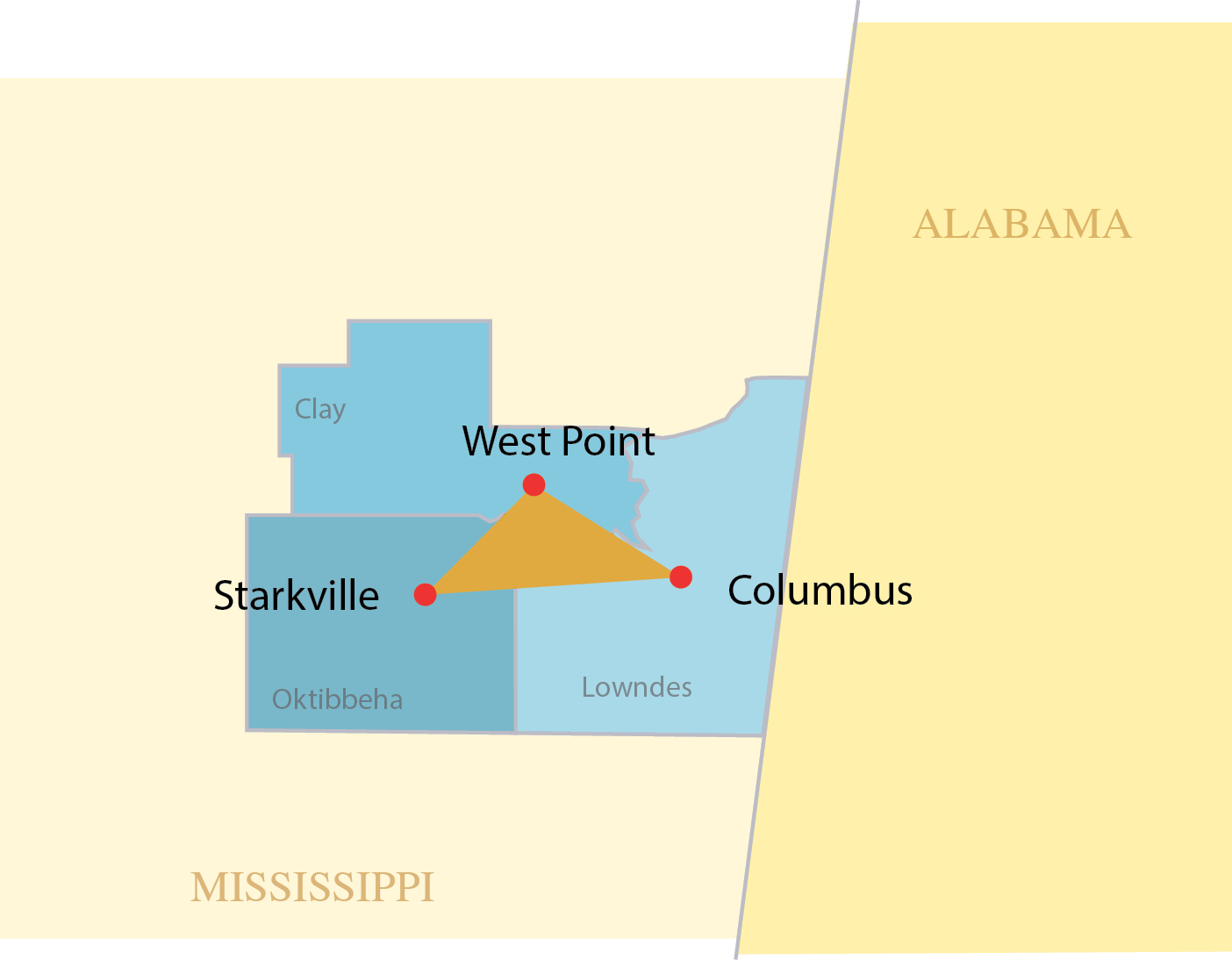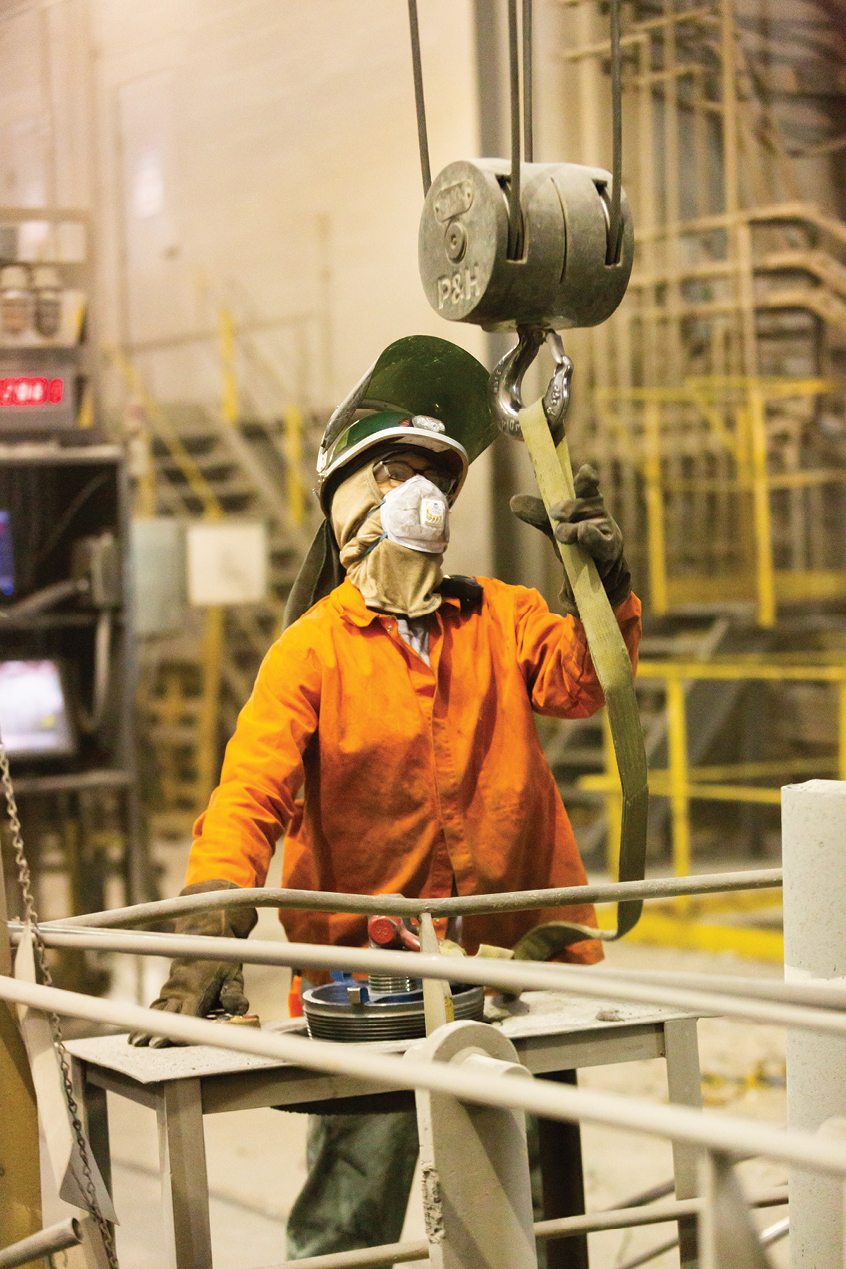Like pretty much any other day, Joe Max Higgins is loaded for bear. From his office in the town of Columbus in East Mississippi, the 20-year CEO of Golden Triangle Development Link is juggling not just his end of the biggest capital investment in state history, but at the same time birthing yet another ambitious “megasite” within his three-county realm. Even so, the voluble Higgins won’t pass on the opportunity to make a statement, taking aim on a Friday morning at some of those many consultants and such who, in his not-so-humble opinion, just don’t get economic development.
“I go to these conferences,” he laments, swearing just a little as he goes. “And I hear all this ‘woke’ BS about work/life balance, making sure your employees are happy, putting in quality-of-life amenities so that people want to live in your community. Livability.” That stuff.
“I really think,” he’s convinced, “that our industry is missing the blocking and tackling.”
Neither crank nor strict contrarian, old school Higgins is a ground game guy — “a defensive line coach”— who happens to be a towering figure within his profession. Having lured a world-beating stable of high-end manufacturers to a struggling patch of Mississippi, Higgins has had a hand in creating thousands of very good jobs whose very good salaries mean more and bigger families, bigger and better homes, better schools, nicer cars and some really nice vacations. How’s that for livability? It’s a point around which the irascible old cuss can become emotional, telling stories of folks raising solid families on solid incomes.


Worker at $2 Billion Steel Dynamics Plant in Columbus, Mississippi.
Photo courtesy of Steel Dynamics
“In 20 years,” he recites,” we’ve done $10 billion worth of projects and created right at 10,000 high-paying jobs. We’re bringing in high capital expenditure, no ‘cut-and-sew’ stuff. We’ve got Steel Dynamics, Boeing, Airbus and Israeli Aircraft. Yokohama and Continental. We make engines and aircrafts. We’re making steel. We’re making tires.
“Think about that,” he pauses. “It might not be your picture of Mississippi.”
Steel Dynamics: A Very Big Deal
Higgins’s latest prized catch is the biggest of them all, the Steel Dynamics aluminum rolling mill under construction since March in Columbus. The competition to land the $2 billion capital project, he says, amounted to a legendary battle within the SEC, with prospective locations in Texas, Alabama, Louisiana, Kentucky and Tennessee among those vying for a project that’s to deliver a minimum of 800 jobs that pay an average salary of $93,000. The massive mill will have a projected annual production capacity of 650,000 tons.
“Columbus,” the mass recycler said in its announcement in November, “is strategically located within the targeted Southeast market, bringing numerous competitive, customer, recycled material and renewable energy advantages to the project.”
In its announcement release, Steel Dynamics also cited the availability of Lowndes County’s 2,000-acre, shovel ready Infinity megasite, a talented local workforce, access to both the Tennessee-Tombigbee Waterway and major Interstates and existing, dependable utilities.
Headquartered in Indiana, Steel Dynamics already enjoyed a foothold in the Golden Triangle, its repeat investments in a steel recycling plant in Lowndes County having totaled nearly $3 billion. Was that Higgins’ ace in the hole?
“The sword cuts both ways,” he says, “because you’d damn sure better have taken care of them since they’ve been here. But the fact that they were already here, they knew our work ethic and had a relationship with us, that definitely gave us a competitive advantage.”
Breaking Down the Ground Game
So, what is “blocking and tackling” to Joe Max Higgins, as he applies it to economic development? You won’t be surprised that Higgins wants to talk workforce.
“Several years ago,” Joe Max testifies, “before anybody talked about workforce being an issue, we put our money where our mouth is.”
The result of that was Communiversity, a $42 million industrial training center within the boundaries of an amalgam of muscular parks that host a growing army of advanced manufacturers that just keep coming to the Golden Triangle.
The high-tech training center’s funding partners include the state of Mississippi, Tennessee Valley Authority and the federal government. Having offered its first classes in 2019, the 135,000-sq.-ft. facility delivers training and education in support of the Triangle’s expanding automotive and aerospace sectors, in particular.

“We don’t teach ‘widget/squidget’ stuff in there,” says Higgins. “There’s fluid dynamics, programmable logic, cabling and electrical and machining. There’s 21 dedicated training bays in there for two-year degrees with high-paying jobs, plus reskilling and retraining for people already working at our plants.”
As Higgins suggests, everyone everywhere is clued in by now to workforce development. His signature move, though — the true dirt work — is in assembling and building out 1,000-plus tracts of industrial land known as megasites. It’s a place where all manner of risk and headaches lurk, but it’s also the roll of the dice that offers the biggest potential rewards: See Steel Dynamics, Paccar and Yokohoma, which occupy parts or all of the four massive industrial parks Higgins has purchased, permitted, outfitted and then handed over to large-scale employers.
“Development of the sites has led to almost all of the success we’ve had,” Higgins declares. “And, like I said, this industry is missing out and losing on how to develop property and product.”
The Triangle region, with its combined population of about 150,000, already has more megasites than a lot of states do. And yet, here comes “Cinco.” Two days before our conversation, Higgins signed an option on 1,500 acres envisioned as the Triangle’s fifth megasite. Now, the work begins again. The surveys and environmental reviews. Pipelines, sewers, pumping stations, internet and electrical. The sheer scale of the project hints at why expansion-minded companies continue to lament a nationwide shortage of “shovel-ready” industrial property.
“You look at other places that get one megasite,” Higgins says, “and all the sudden they think they’re done. But we want to win more than one championship. Anything less is not acceptable to me. You need to keep growing, keep growing, keep growing.”

